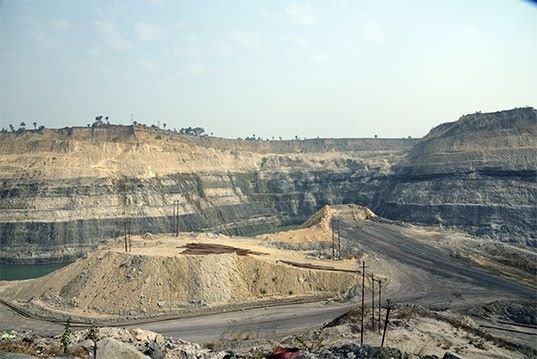Coal India Announces Price Hike for Rajmahal Coalfields to Boost Revenue
Coal India, the state-run coal mining giant, has announced a price increase for coal extracted from its Rajmahal coalfields. The revised rate of ₹700 per tonne is expected to address rising operational costs and improve profitability for the company, a move that could have significant implications for the energy and industrial sectors.
The new pricing for the Rajmahal area marks a strategic shift for Coal India. This increase, applicable to the high-quality coal produced in this region, is part of the company’s efforts to offset escalating production expenses. Factors like inflation, transportation, and the rising cost of machinery maintenance have played a role in necessitating this price adjustment.
Rajmahal coalfields, located in Jharkhand and operated under Eastern Coalfields Limited, are a critical component of Coal India’s portfolio. They serve a range of clients, including power plants, steel manufacturers, and other industries dependent on coal. The revised pricing is expected to directly impact these sectors, potentially influencing energy costs and production expenses.
Ensuring Energy Security of the Nation !
India’s coal production for FY 2024-25 up to November 2024 reached 628.03 MT (Provisional), compared to 591.32 MT during the same period in FY 2023-24, reflecting a growth of 6.21%. (Provisional).
Similarly , Coal dispatches for FY… pic.twitter.com/0fVK7zBliL
— Ministry of Coal (@CoalMinistry) December 1, 2024
Impact on the Energy Sector
The price hike could lead to ripple effects across India’s energy landscape, particularly for coal-fired power plants. As coal remains a primary energy source for the country, any change in its pricing can influence electricity tariffs. Power producers relying heavily on coal from Rajmahal may need to adjust their budgets, with potential downstream effects on consumers and industries.
The timing of this price revision coincides with India’s ongoing efforts to balance energy demands with sustainable development goals. While coal remains vital for meeting the country’s energy needs, the move also underscores the challenges faced by the sector in maintaining affordability amid operational pressures.
Industrial Repercussions
Beyond energy, the price increase is likely to affect industries such as steel and cement, where coal is a critical input. Higher coal costs may contribute to increased production expenses, potentially leading to higher market prices for these essential materials. Industries may need to explore efficiency measures or alternative energy sources to mitigate the impact of rising input costs.
Coal India’s Strategic Objectives
This decision aligns with Coal India’s broader objective of ensuring financial stability and long-term sustainability. As one of the world’s largest coal producers, the company faces the dual challenge of meeting growing demand while managing economic pressures. The price revision for the Rajmahal coalfields is seen as a step toward balancing these priorities, ensuring operational efficiency without compromising on supply commitments.
Additionally, Coal India is focused on optimizing its mining operations and improving cost management. The company has been working on modernizing infrastructure and adopting advanced technologies to enhance productivity. The revenue boost from the price hike is expected to support these initiatives.
Potential Challenges
While the price increase may bolster Coal India’s financial position, it also raises concerns about affordability and accessibility for end-users. Energy-intensive industries and power plants dependent on coal could face financial strain, especially smaller entities with limited capacity to absorb cost escalations.
Furthermore, this development comes at a time when India is transitioning toward cleaner energy sources. The reliance on coal, despite its economic significance, remains a contentious issue in the context of global climate commitments. Striking a balance between economic needs and environmental goals will be critical for Coal India and the broader energy sector.
Coal India’s decision to revise coal prices in the Rajmahal area highlights the complexities of managing a resource-intensive industry in a dynamic economic environment. As the company navigates these challenges, the move serves as a reminder of the delicate interplay between pricing strategies, industrial growth, and energy affordability.
While the immediate impact may be felt across industries, the long-term effects will depend on how effectively Coal India leverages the additional revenue to enhance operational efficiency and align with India’s broader energy objectives.
See Also:
Indian Student in Chicago Shot Dead
Arrest of 2nd Hindu Priest in Bangladesh Raises Alarms
Social Media Ban for Under-16s in Australia
US Universities Advise International Students to Return Before Trump’s Inauguration
China Discovers Massive Gold Reserve Worth ₹7 Lakh Crore
——————————————————————————-
It would mean the world to us if you follow us on Twitter, Instagram and Facebook. At Newscazt, we strive to bring you the latest news and stories from India, World, Business, Sports, Entertainment and more. Our team of experienced journalists and writers are committed to delivering accurate and unbiased news and analysis.




